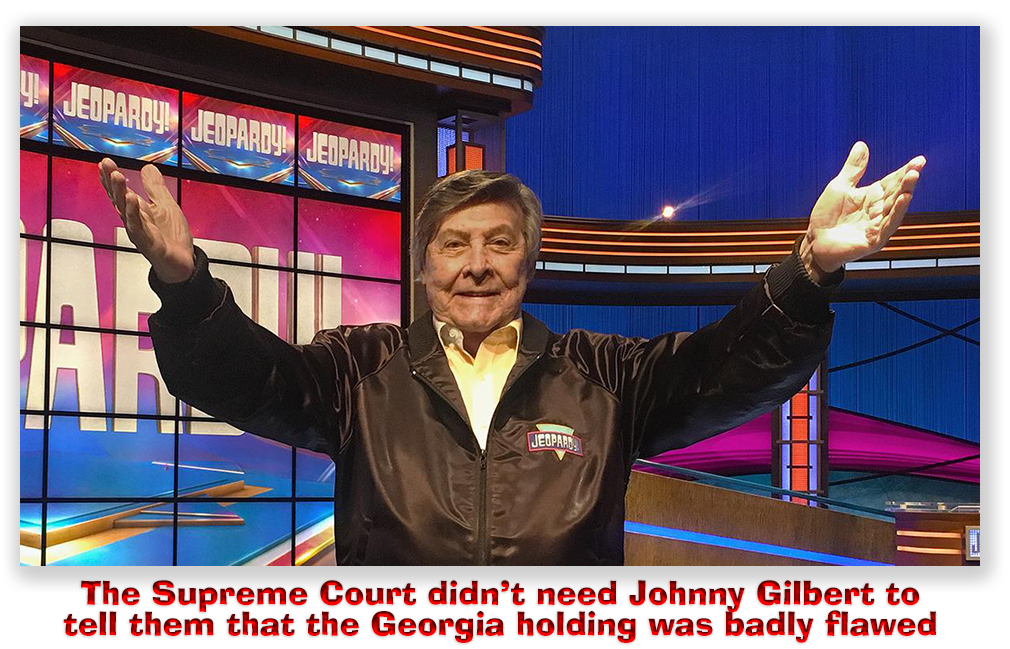We post news and comment on federal criminal justice issues, focused primarily on trial and post-conviction matters, legislative initiatives, and sentencing issues.

THIS IS JEOPARDY!
Damian McElrath killed the woman who had adopted him based on his delusional belief that she was poisoning him. Georgia charged him with premeditated murder, felony murder, and aggravated assault. At his trial, the jury found him not guilty by reason of insanity of premeditated murder but guilty of felony murder and aggravated assault.
 The 5th Amendment ban on double jeopardy – being tried twice for the same offense – should have meant that Damian’s acquittal on murder was the end of things for that charge. But the Georgia Supreme Court held that the verdicts of innocent on premeditated murder but guilty on the two lesser charges were directly contradictory.
The 5th Amendment ban on double jeopardy – being tried twice for the same offense – should have meant that Damian’s acquittal on murder was the end of things for that charge. But the Georgia Supreme Court held that the verdicts of innocent on premeditated murder but guilty on the two lesser charges were directly contradictory.
There was no way that Damian could have the necessary state of mind to be guilty of the two lesser offenses but not have the state of mind for the greater offense, the Georgia Supreme Court held.. Thus, it concluded that the contradiction meant that the jury’s conclusion did not count as a “verdict” and Georgia could retry him, even on the premeditated murder on which he had been acquitted.
Last Wednesday, the US Supreme Court made short work of the case. Justice Jackson wrote for a unanimous Court that the fact that Damian’s
‘not guilty by reason of insanity’ verdict was accompanied by other verdicts that appeared to rest on inconsistent findings is of no moment… The Double Jeopardy Clause prohibits second-guessing an acquittal for any reason… Once there has been an acquittal, our cases prohibit any speculation about the reasons for a jury’s verdict—even when there are specific jury findings that provide a factual basis for such speculation—because it is impossible for a court to be certain about the ground for the verdict without improperly delving into the jurors’ deliberations. We simply cannot know why the jury in McElrath’s case acted as it did, and the Double Jeopardy Clause forbids us to guess.”
McElrath v Georgia, Case No 22-721, 2024 U.S. LEXIS 997 (Supreme Ct., February 21, 2024)
– Thomas L. Root

